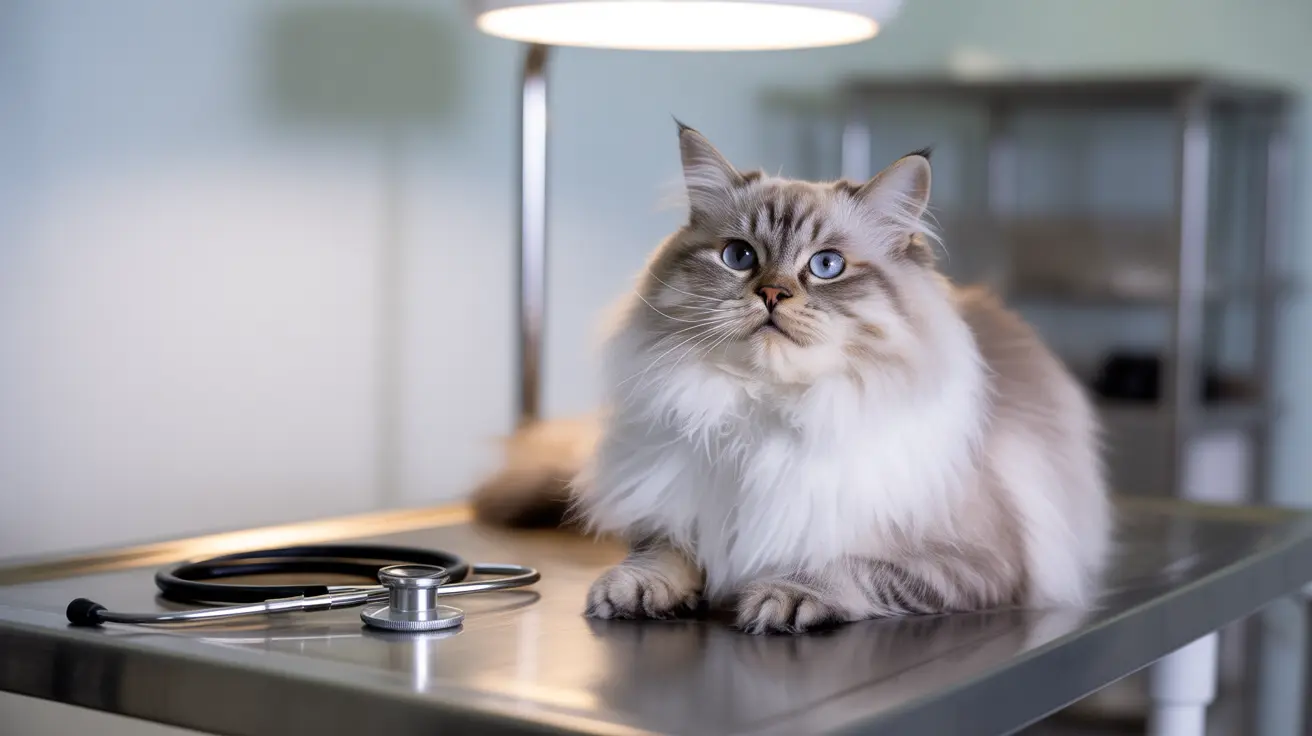Gastrointestinal ulcers in cats can be a serious health concern that requires prompt veterinary attention. While less common than in dogs, cat ulcers can cause significant discomfort and may indicate underlying health issues that need addressing. Understanding the causes, recognizing symptoms early, and knowing when to seek treatment are crucial for your cat's wellbeing.
What Causes Ulcers in Cats?
Cat ulcers rarely develop on their own and are typically secondary to other health conditions. The most common causes include:
Primary Medical Conditions
Certain diseases can lead to ulcer development in cats:
- Gastrointestinal cancers (especially lymphoma)
- Chronic kidney disease
- Liver disease
- Severe infections or sepsis
External Factors
Several external triggers can contribute to ulcer formation:
- Medication reactions (particularly to NSAIDs)
- Severe stress
- Physical trauma from foreign objects
- Bacterial infections (including Helicobacter species)
Recognizing Symptoms of Cat Ulcers
Early detection of ulcers can lead to better treatment outcomes. Watch for these warning signs:
Common Signs
- Vomiting (may contain blood or appear dark like coffee grounds)
- Dark, tarry stools
- Decreased appetite
- Weight loss
- Lethargy
- Excessive drooling
Advanced Symptoms
- Pale gums
- Severe weakness
- Abdominal pain
- Dehydration
Diagnosis and Treatment
Diagnostic Process
Veterinarians use several methods to confirm the presence of ulcers:
- Physical examination
- Blood tests
- Imaging (X-rays and ultrasound)
- Endoscopy for direct visualization
- Tissue biopsies when necessary
Treatment Approaches
Treatment typically involves a multi-faceted approach:
- Addressing underlying conditions
- Medications to reduce stomach acid
- Protective medications for the stomach lining
- Antibiotics if infection is present
- Fluid therapy for dehydration
- Special dietary management
Prevention and Long-term Management
While not all ulcers are preventable, several steps can help reduce risk:
- Regular veterinary check-ups
- Careful medication management
- Stress reduction
- Proper diet and nutrition
- Prompt treatment of any underlying conditions
Frequently Asked Questions
What are the common causes of gastrointestinal ulcers in cats?
The most common causes include cancer, kidney disease, medications (especially NSAIDs), severe stress, infections, and foreign bodies in the digestive tract.
What symptoms should I look for if I suspect my cat has a stomach ulcer?
Watch for vomiting (especially with blood), dark stools, decreased appetite, weight loss, lethargy, excessive drooling, and signs of abdominal pain.
How do veterinarians diagnose ulcers in cats, and what tests are involved?
Diagnosis typically involves physical examination, blood tests, imaging studies (X-rays and ultrasound), and possibly endoscopy with tissue biopsies.
What treatment options are available for cats with gastric or intestinal ulcers?
Treatment includes addressing underlying causes, acid-reducing medications, protective medications, antibiotics if needed, fluid therapy, and dietary management.
How can I help prevent ulcers in my cat, especially if they have chronic health issues?
Prevention involves regular veterinary care, proper medication management, stress reduction, appropriate diet, and prompt treatment of any underlying conditions.
Conclusion
While cat ulcers can be serious, early detection and proper treatment can lead to positive outcomes. If you notice any concerning symptoms in your cat, don't hesitate to consult your veterinarian. With proper care and management, many cats with ulcers can recover and maintain a good quality of life.






